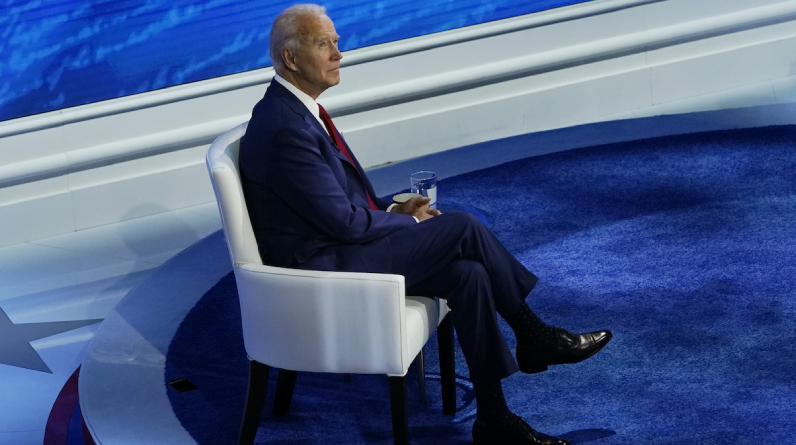In less than a week the culture war included gas stoves Reasons why

The health and environmental implications of gas cooking stoves in households were a topic that policy makers and academics were researching in the beginning of January.
Then, on January 9, Bloomberg News published an interview with Richard Trumka, Jr., a commissioner on the U.S. Consumer Product Safety Commission, in which he suggested that, in response to health concerns about indoor air quality, the government might consider more stringent regulation of new gas stoves.
Within a few days, those stoves were being used as campaign paraphernalia and by political influencers.
United States Representative Jim Jordan (R-Ohio) tweeted, “God. Guns. Gas Stoves.”
The political party of Florida Governor Ron Desantis promptly released aprons for sale in the shape of a yellow Gadsden flag, which was previously a symbol of the Tea Party, but with a gas stove in place of the rattlesnake that is typically included.
“Biden isn’t just after your income; he also wants your stove. You got it correctly. At this time, the White House is pushing to outlaw all gas ranges and burners “declared Sean Hannity, a host on Fox News.

After Trumka had already stated that the agency “isn’t coming for anyone’s gas stoves,” each of these pro-stove statements were made.
The “public health concern” of gas stoves
More and more studies are showing that having gas cooking stoves in the home can have short- and possibly even long-term health impacts on children and other people with lung disorders like asthma. This has sparked a debate about more stringent regulations of gas stoves.
The American Public Health Association called the appliances “a public health concern” this week in a statement and urged federal agencies to take additional steps to inform the public about these health hazards and to do more study. Additionally, most climate change researchers concur that if the United States is to meet its decarbonization targets, home usage of natural gas, a fossil fuel, would need to be drastically reduced.
Such charges were levelled against the natural gas sector, utilities, and appliance makers decades before politicians and influencers took up their cause.
Actors with political aspirations reacted by adopting gas stove-themed variations of the well-known pro-gun rights phrase, “Come and take it.”
“It’s a fairly well-developed reflex among hyperpartisan media sites and influencers doing what it does best, which isolating an issue, distorting it, and then igniting indignation. And by doing that, it can amuse its audience “According to Jared Holt, a senior research manager at the nonprofit Institute for Strategic Dialogue, which investigates political polarisation and extremism.
Holt claimed that he views each cycle of staged anger as a separate beat in a song. Gas stoves, in his opinion, are merely a byproduct of routinely engaging in rituals of hostility, cynicism, and mockery against government control and groups deemed antagonistic to conservatism.
Using indignation to gain attention and sell books
The outrage also attracts a lot of people’s attention, money, and influence. Last week, a TikTok user posted, “My gas stove identifies as electric,” in which she carefully turned on a few of her gas stove’s burners while sipping what appeared to be white wine. Nearly two million people viewed the post, which plays on myths that liberal attitudes on gender and regulation are ridiculous.

While accumulating views and likes on social media may seem like a childish goal, Holt cites right-wing personalities who have learned how to stoke the fires and grow into well-known, hyper-partisan influencers. Anyone with a book, t-shirt, or conspiracy theories to market has an opportunity at times like these.
“For most people, I believe, paying the bills is a pretty excellent motivator. especially if it grants you access to great sums of influence and power “cites Holt.
According to Melissa Aronczyk, a professor at Rutgers University who has written about public relations and strategic communication in the struggle against environmental regulation, the controversy resulted from framing the discussion around the word “ban.”
“Therefore, I believe that a word like “ban” initiates a chain of events. You are unable to direct us. You are not permitted to enter my house and take my belongings. Why are you criticising my lifestyle decisions? “affirms Aronczyk.
Also Read : U.S. Science Leadership Increasingly Challenged in Asia
Campaign “Cooking with Gas”
She claims that similar rhetoric was used by conservatives who opposed the founding of the Environmental Protection Agency in 1970, referring to it as “a command and control organisation.” According to Aronczyk, these arguments portrayed solving environmental issues as a trade-off in terms of economic benefits.
Last week, as the right-wing uproar over gas stoves grew, Fox News featured restaurant owners who claimed that a ban on gas stoves would completely ruin the food services sector. According to Aronczyk, many of the most ardent environmental activists have long held the belief that gathering and disseminating scientific information will inspire others to join environmental movements and take action. She asserts that has not necessarily been the case.
She claims that in the meantime, PR agencies and marketers for the natural gas sector have sought to build favourable associations with their products through campaigns like “cooking with gas,” which employed chefs to promote the idea that using gas is essential to being a successful cook. It’s a component of a playbook that, according to Aronczyk, hasn’t really evolved much since the tobacco industry deployed it in the 1960s and 1970s.
A debate about cooking at home is much more relatable than a sophisticated discussion on how gas stoves can eventually affect the environment or public health. These causes revolve around group action and group harms. Professor of psychology at the University of Maryland, Arie Kruglanski, describes them as “distant, abstract, and out there in the future.”
Leave a reply
You must be logged in to post a comment.









